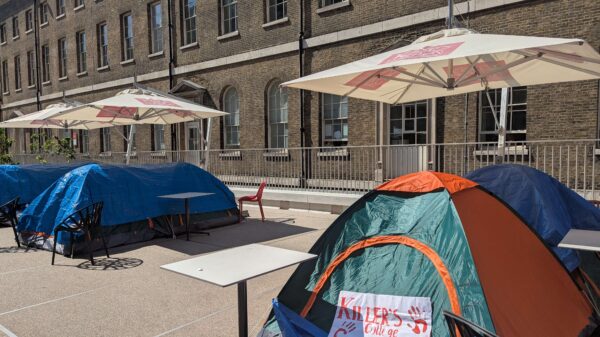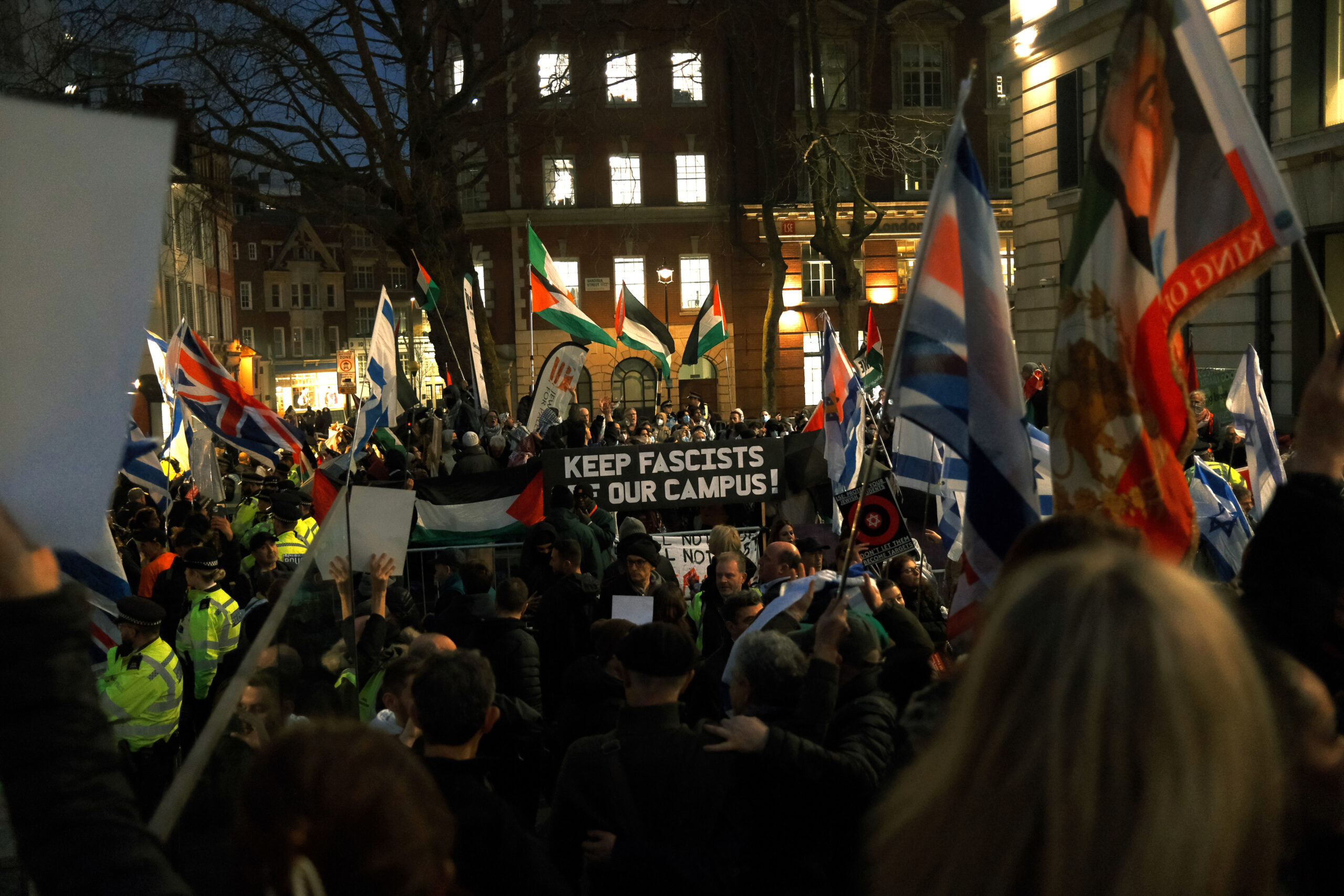Staff writer Matthew Pellow argues that Israel’s judicial reforms will serve to further disrupt the lives of Palestinians.
Israel’s judicial reforms proved to be an explosively divisive undertaking for Prime Minister Benjamin Netanyahu and his right-wing coalition government. Protests took place across the country, with demonstrations in Tel Aviv alone averaging between 100,000 and 200,000 participants according to organisers, accounting for some 2% of Israel’s entire population.
Despite this significant display of opposition, the government pushed on with its plan, albeit in a watered-down form. While these reforms will impact Israeli life, Palestinians, particularly those living in the occupied West Bank, may bear the brunt of the reforms. The occupation many of them suffer under could be worsened by a weaker Supreme Court.
Recently, in an interview with Bloomberg, Netanyahu promised that his government would temporarily halt further reform to the judiciary “to build consensus”. However, he plans for a bill changing the way judges are selected for the Supreme Court to be passed later this year, having already succeeded in passing a law to end the ‘reasonableness doctrine’ in July. According to the American Jewish Committee, the reasonableness doctrine is an important precept in Israeli law which gives the courts the ability to challenge government actions on the basis that all individuals in public office must act in a manner which is just, equitable, and considerate of others.
Without the doctrine, Israeli courts can no longer provide a strong check and balance to the power of the government – an important feature of liberal democracy. Should Netanyahu succeed in changing how judges are selected later this year, the separation of powers within government will be undermined further still.
In any case, any additional power going to the coalition government should be a worrying proposition for Palestinians. Following Israel’s political crisis between 2018 and 2022, during which five snap elections were called, Netanyahu’s Likud Party made a disturbing coalition with several far-right parties in order to bring an end to the political instability of the previous years.
Two among them stand out in particular. The first being Otzma Yehudit, led by Itamar Ben-Gvir, which is associated with Kahanism, an extremist ideology that considers Arabs living in Israel as enemies of Jews and Israel itself. Adherants of Kahanism ultimately aim to strip Arabs of their voting rights. The second is Avi Moaz’s Noam, a fringe party founded with the primary goal of advancing anti-LGBT legislation.
While it is horrifying in itself that a mainstream party, such as Likud, in a liberal democracy would lower itself to partnering with such reprehensible bedfellows, it is even more worrying that members of these far-right parties have been given senior positions in the cabinet. For example, Ben-Gvir, convicted of supporting a Kahanist terrorist organisation in 2007, was made Minister of National Security in late November 2022. Ben-Gvir himself lives in Kiryat Arba, an Israeli settlement on the outskirts of Hebron, a city in the occupied West Bank, which is considered illegal under international law. By giving such power to individuals like Ben-Gvir, Netanyahu is only undoing any move towards a peaceful resolution of the Israel-Palestine conflict and is openly asserting the rights of Israeli settlers over Palestinians.
Since Israel occupied the West Bank in 1967, the Supreme Court of Israel has been the only institution where Palestinians can challenge cases of illegal settlement. There have been several cases in which Palestinians have succeeded in challenging individual attempts at settlers expulsing them from their homes. For example, the Sumarin family, who live in East Jerusalem, won a case against a settler organisation called Elad this year after more than three decades of litigation, following an attempt by the Israeli government and Elad to evict the family in order to expand Israeli presence in the neighbourhood. The Supreme Court cancelled the eviction, criticising the state for acting against international law by falsely declaring the home abandoned in a rare victory for Palestinians over settlers.
However, while some pro-Palestinian judgements exist, Gershom Gorenberg, an Israeli historian and journalist, argued in the Washington Post that Netanyahu is purposely overstating the liberal bias of the Supreme Court as a strategy to destroy its credibility. Though Netanyahu characterises the Supreme Court as “perhaps the most activist judicial court on the planet”, this should be seen as populist spin and not a considered analysis of the institution. For example, in 2004 the court ruled that the separation barrier, a series of fences and walls separating Israel and the West Bank, was not a violation of international law, despite being ruled as illegal by the International Court of Justice since it cuts through Palestinian territory in the West Bank. Netanyahu’s assessment of the Supreme Court is a distortion.
Despite this, Netanyahu’s “decisive” majority in the Knesset, Israel’s Parliament, means that the Supreme Court may be the only institution with a realistic chance of blocking his attempts to further contravene international law by annexing de jure parts of the West Bank. The Court would likely stand in the way of such a move, especially since Netanyahu made it clear that Palestinians living in areas set to be annexed will not be given Israeli citizenship. This contradicts precedent as Israel has offered Palestinians living in East Jerusalem and the Golan Heights citizenship when these territories were annexed, meaning the Supreme Court could challenge Netanyahu on this policy.
Mairav Zonszein, an Israel-based senior analyst at the International Crisis Group, agrees with this sentiment arguing that the “whole notion of weakening the Supreme Court” empowers Netanyahu’s government to progress “with Israeli annexation and with providing impunity to soldiers and settlers”. Zonszein’s point about the impunity provided by weakened judicial independence is key; for all its faults, the court does provide a measure of accountability for the Knesset and indirectly the government, in addition to settlers and soldiers.
Given the dangerous potential of the Israeli judicial reforms, one might expect Palestinians to stage protests themselves. However, while the judicial reform issue has mobilised people in droves in Israeli cities, such as Tel Aviv, the subject has largely been ignored both by Palestinians and Palestinian media. A friend of mine living in Al Arroub refugee camp, Ahmad, said that he “pays no attention” to Israeli politics since regardless of who is in power, the occupation and political violence remain.
When I asked Mutaz, a manager at the Palestinian Center For Education & Cultural Exchange in Hebron, why Palestinians appeared largely indifferent to the judicial reforms, he put it bluntly, “they [Palestinians] are in sh*t – it doesn’t matter what kind of sh*t it is, the situation is bad anyway”. The basic indifference to the domestic affairs and political leadership of Israel is understandable; despite the impact that judicial reforms will certainly have on Palestinians, they have no political rights in Israel and so can hardly influence Israeli government actions. The futility of political participation in Palestine also leads many to ignorance – as Mutaz put it “normal Palestinians…would not have complete understanding of what the legal or the political circumstances would be”.
Ultimately, we do not yet know what the impact of the reforms will be. Regardless, any weakening of the judicial system will almost certainly worsen the conditions and rights violations for Palestinians under occupation. While Israel’s Supreme Court has been limited in its power to provide checks on the occupation, it remains one of the only institutions where Palestinians can challenge settler encroachment and other injustices. As the power of the judiciary is undermined, settlements in the West Bank will inevitably balloon, buoyed by government support. In this context, the future looks increasingly bleak for aspirations of Palestinian self-determination and a just two-state solution.













